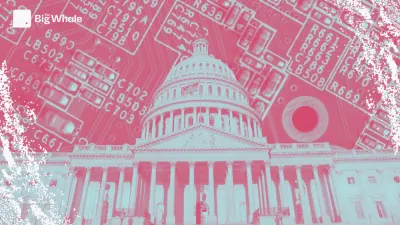On 20 May 2025, the Créteil judicial court handed down an unprecedented decision that illustrates one of the first encounters between the law and the world of distributed networks.
While this was not, strictly speaking, a dispute relating to a DAO (decentralised autonomous organisation), it concerned a project backed by a smart contract deployed on the BNB Chain (Binance's blockchain) by an anonymous team, with no identifiable legal structure, the analysis developed by the court can be used in the context of a DAO, particularly with regard to the responsibility of "Core Teams" in the world of decentralised organisations.
In this case, Morgan Lewis represented one of the defendants (developers, editor's note).
The dispute was as follows. Several investors in a stablecoin return protocol, injured as a result of hacking and an alleged malfunction of the protocol's emergency withdrawal function, summoned three persons identified as having participated in the development or promotion of the project. In their regard, they alleged that several technical faults in the design of the project engaged their personal liability, and sought in the alternative the recognition of a company created de facto, with the aim of establishing joint and several liability between them.
The decision rejects all of the claims.
Two main lessons can be drawn from this: the impossibility for the court to impute the alleged technical faults to the persons assigned, and the refusal to classify their collaboration as a "de facto created partnership", in the absence of sufficient objective elements or appearance.
On the non-attributability of the faults The court considers that two technical failures occurred in the project - a private key disclosure and what it describes as a coding error. Although the defendants pointed out that all of the functionalities of the smart contract were public and known to everyone, and that anything a smart contract could be made to do resulted only from use of its functionalities, which by definition excludes the notion of error, the court excludes the argument without responding to it, which is regrettable because the issue seems so fundamental to us.
To these findings, the court opposes an essential principle: mere participation in the development of a smart contract on a blockchain (which must be proven) is not such as to give rise to liability in the absence of personal fault. The fact that a developer participated in the development of allegedly faulty code, or that an individual promoted the project, is therefore not sufficient to establish their personal liability, in the absence of direct and proven imputability. Here, the court found that there was no evidence of the defendants' participation in the project.
On the classification as a company created de facto In addition, the plaintiffs invoked the existence of a company created de facto to seek the defendants' joint and several liability, and argued in this regard that the three people summoned were acting as partners in a structured project, even if informally. Here again, however, the court applied a rigorous analysis of the legal criteria: recalling the project 'team's' stated desire for anonymity, expressed publicly in their communications, the court held that the plaintiffs could not legitimately believe in the apparent existence of a company, so that they could not seek the liability of a group whose contours, intentions and operating rules were deliberately undefined. This ground is particularly interesting in the light of the Ooki DAO and also Lido DAO decisions that had been handed down across the Atlantic.
In fact, a recent decision handed down by the Federal District Court for the Northern District of California in the case of Samuels v. Lido DAO, et al. is attracting the attention of the entire sector, particularly supporters of decentralised governance. Lido DAO is a class action brought against Lido DAO and several venture capital firms by an investor who allegedly lost money buying LDO tokens on the secondary market. Lido DAO follows a default judgment obtained by the Commodities Futures Trading Commission (CFTC) against Ooki DAO in CFTC v. Ooki DAO , with the US District Court for the Northern District of California finding that the CFTC had presented sufficient facts to show that Ooki DAO was an unincorporated association under California law. Previously, the U.S. District Court for the Southern District of California, in Sarcuni v. bZx DAO , had noted that the alleged governance token holders of Ooki DAO's ancestor, bZx DAO, could be considered members of a general partnership under California law.
Thus, this decision in France - by refusing to impose liability solely on the basis of a supposed association of anonymous participants in the project - sends a clear signal: the ordinary law of liability remains attached to proof, imputability and the personal identification of the developers of the project. In this sense, this case law is more protective of CAD developers and creators than those handed down in the United States. For French judges, in the absence of a formalised framework - articles of association, commitments, hierarchy, control over the protocol, which is decentralised, forked and forkable , and open source - it is extremely difficult to mobilise the tools of civil law to punish the supposed malfunctions of these crypto projects.
This decision therefore illustrates a reality: legal remedies based on individual civil liability in the context of a hack remain difficult to found, unless a clearly identifiable organisation, structure or negligence can be materialised.
The fact remains that on a criminal ground, in the presence of a hack, it is always possible to seek the hacker's liability.This case law illustrates the work of the Haut Comité Juridique de la Place de Paris, which has already published a report on DAOs . This report sets out in great detail the state of the law regarding the liability of parties involved in a DAO and the possible qualifications under French DAO law. It also sets out a comparison with a number of foreign laws on these same issues. Following this first report, the HCJP asked the working group to continue its work and prepare a second report, in order to make legislative proposals in French law for the operation of DAOs. The report is expected by the end of the year. There is no doubt that this case law decision will be studied carefully in the context of this report.
Heading 1 Heading 2 Heading 3 Heading 4 Heading 5 Heading 6 Lorem ipsum dolor sit amet, consectetur adipiscing elit, sed do eiusmod tempor incididunt ut labore et dolore magna aliqua. Ut enim ad minim veniam, quis nostrud exercitation ullamco laboris nisi ut aliquip ex ea commodo consequat. Duis aute irure dolor in reprehenderit in voluptate velit esse cillum dolore eu fugiat nulla pariatur.
Block quote Ordered list
Item 1 Item 2 Item 3 Unordered list
Text link
Bold text
Emphasis
Superscript
Subscript





